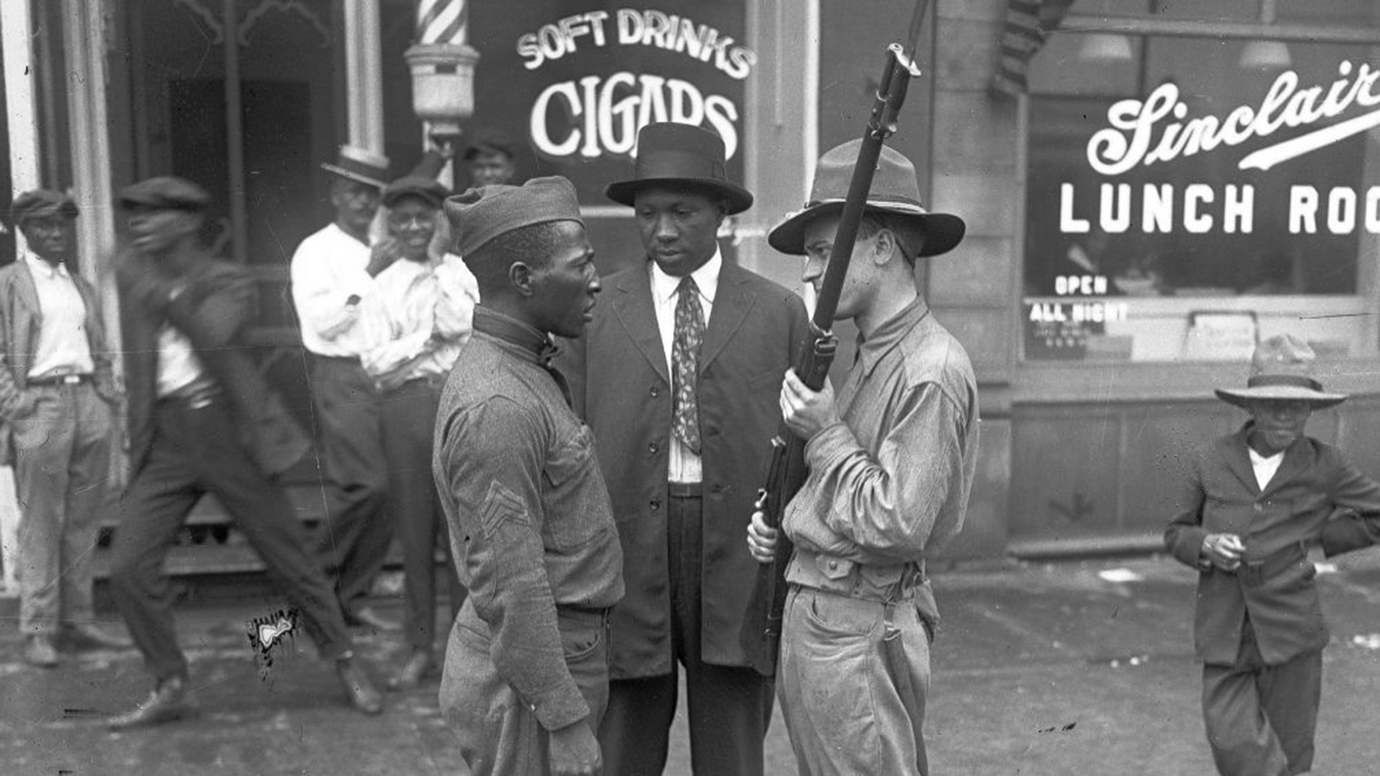In the summer of 1919, the city of Chicago became a backdrop for profound societal tumult and unrest, culminating in one of the most egregious racial confrontations in American history. The ensuing race riots became emblematic of the broader struggles against racism and injustice that continue to resonate today. Reviewing these historical events through the lens of Bahá’í teachings reveals indispensable insights into the attributes of truth, healing, and reconciliation that are necessary for societal progress. This exploration delves into the interconnectedness of spirituality and social justice, emphasizing how Bahá’í principles can illuminate pathways toward healing from such grievous epochs.
The Bahá’í Faith posits that the pursuit of truth is paramount. This pursuit embodies not only the obligation to seek factual understandings but also to cultivate an empathetic disposition that acknowledges the lived experiences of marginalized communities. The Chicago race riots are a somber reflection of the consequences when truth is obscured by prejudice and ignorance. The Bahá’í teachings urge individuals to confront uncomfortable truths and utilize these revelations as catalysts for individual and collective growth.
During the riots, deep-seated racial tensions were ignited by various socio-economic catalysts, culminating in violence and despair. Understanding the historical context is crucial for cultivating truth. Acknowledging that the racial disparities of that time were rooted in systemic inequities shaped by socio-political dynamics allows for a more nuanced comprehension of contemporary racialized experiences. This acknowledgment serves as a corrective lens through which individuals can cultivate an informed perspective on the long-lasting repercussions of such events, fostering an atmosphere conducive to dialogue and understanding.
Moreover, the Bahá’í teachings emphasize the importance of unity in diversity. This concept advocates for the recognition and celebration of differences among individuals as a divine asset rather than a basis for division. The segregation and hostility evident during the Chicago riots starkly contrast with this ideal. The movement towards unity is paramount, necessitating efforts from both individuals and institutions to foster environments where all voices, particularly those historically marginalized, are heard and valued. This requisite dialogue is fundamental to the healing process, creating pathways for mutual respect and collaboration.
Healing is another critical element underscored by Bahá’í principles. Following the emotional and physical devastation of the riots, mechanisms for healing must be prioritized. Healing begins from within and extends outward to communities, denoting a compassionate approach that encompasses forgiveness, understanding, and reconciliation. Bahá’í teachings advocate for the process of restoring relationships, which is essential in the aftermath of trauma. Healing extends beyond individual acts of kindness; it involves systemic changes that address the roots of injustice and inequality.
Moreover, the commitment to justice is deeply embedded in the Bahá’í teachings. Justice is not merely the absence of oppression; it is an active principle that demands involvement in the betterment of society. Addressing the historical injustices stemming from the Chicago race riots calls for courageous actions, including restitution and reparative measures. It underscores the imperative of not relegating these discussions to the annals of history but rather actively engaging in the pursuit of equity in contemporary society. Addressing past injustices facilitates an authentic moving forward and allows for the flourishing of a society where diversity is genuinely embraced.
Central to the Bahá’í teachings is the principle of the oneness of humanity. This philosophical pillar asserts that all people, regardless of race, nationality, or creed, are interconnected. This tenet challenges any form of segregation or discrimination while urging individuals to transcend their baser instincts and prejudices. The riots in Chicago exemplify the destructive consequences of failing to recognize this fundamental truth. Overcoming the divides that separate humanity requires a conscious, sustained effort—translating words of unity into action.
Furthermore, Bahá’í teachings advocate for an educational revolution as a means to impact societal transformation. The riots highlighted not only social discord but also a significant gap in understanding among different communities. Education serves as a powerful tool to engender empathy, enabling individuals to engage with one another’s histories and experiences meaningfully. By prioritizing inclusive curricula and dialogue surrounding racial equity, communities can catalyze a deeper understanding and diminish the likelihood of violence born from ignorance.
In reviewing the Chicago race riots through a Bahá’í lens, it becomes evident that truth and healing are not merely abstract concepts but foundational tenets that can inform actionable responses to historical injustices. The teachings of equality, justice, unity, and education elucidate a comprehensive framework for addressing the repercussions of systemic prejudice and violence. As societies grapple with the legacies of historical traumas, the Bahá’í principle of the oneness of humanity emerges as a beacon—calling forth individuals and communities to engage in processes of truth-telling and reconciliation, ultimately leading toward a more just and harmonious existence for all.
Reflecting on the 1919 Chicago race riots through the lens of Bahá’í teachings compels individuals to engage in meaningful discourse that transcends the confines of historical narrative. It invites a collective commitment to healing—facilitating a restorative journey toward understanding and empathy. Let this exploration ignite a continuous dialogue about the importance of truth and the imperative for systemic healing in the face of historical injustices.
